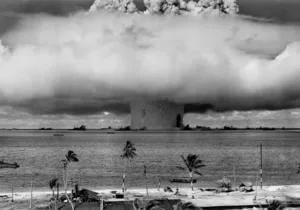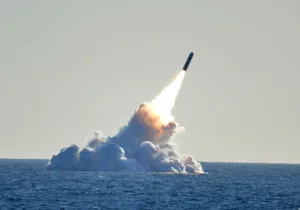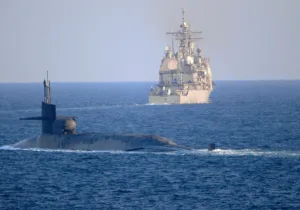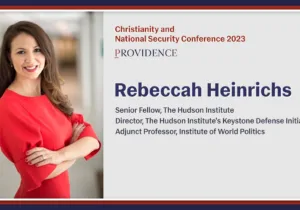Another Nobel Peace Prize awarded, another year in which the prize shrinks further into irrelevance. While awarding the prize to President Obama when he had been in office for a mere 10 months (the nomination deadline was 10 days after he was in office!) sufficed to prove the prize has lost all credibility, this years winner stresses the point further. ICAN (International Campaign to Abolish Nuclear Weapons) won the prize for passing a UN treaty to comprehensively prohibit nuclear weapons (Treaty on the Prohibition of Nuclear Weapons), with the goal of eventuating in their total elimination. One wins a peace prize now-a-days for thinking happy thoughts.
The UN passes resolutions all the time that, basically, everybody who wants to simply ignores, including the United States and every other current nuclear power. International law is weak and essentially unenforceable, except when an actual nation state with sufficient power musters the political will to use that power. So why is this different? The committee claims that ICAN is doing something new:
The organization is receiving the award for its work to draw attention to the catastrophic humanitarian consequences of any use of nuclear weapons and for its ground-breaking efforts to achieve a treaty-based prohibition of such weapons.
Ok, so the Norwegians think this is launching us into a new era of nuclear nonproliferation and, possibly, abolition. Do I want a world free of nuclear weapons? Yes. Do I want a world free of fear and misunderstanding? Yes. Do I want a world in which we will embrace each other as brothers and sisters? Sure. Do I think any of these things will be practically achievable in the next 50 years (ever?) through government actions? No.
Perhaps I am being a bit too cynical. I went to the ICAN website to check out in greater detail the resolution and plan that earned such accolades. Maybe this is not another pie-in-the-sky peacenik plan that will have zero affect on the issue of nuclear nonproliferation.
Alas, here are a few highlight facts that I gathered:
- Russia, who has the worlds largest stockpile of nuclear weapons in the world (7,000), did not participate in the treaty negotiations, which means it will neither sign on to the treaty nor even care that this treaty was ever recognized by the Norwegian government.
- The United States, who has the second largest stockpile of nuclear weapons (6,800), did not participate in the treaty negotiations either. And to throw in this kicker, the US government publicly stated “it intends never to join the treaty.”
- Both Russia and the US voted against the treaty. That means the two countries that control the vast majority of nuclear weapons in the world have no interest in the nuclear abolition treaty.
- What about China? The UK? France? These are nuclear powers with significant stockpiles of the weapons. None of them participated in the treaty negotiations and all voted against it.
- What about Germany? Surely Germany, one of the most pacific countries in Europe, signed on to the treaty. Not only did Germany follow the paths of the nuclear nations, they claimed that US nuclear weapons on German soil “are essential for its security.”
So who actually signed this treaty?
- Peru, the Holy See, Nepal, Austria, Malaysia, Algeria, Côte d’Ivoire, Panama and a host of other countries, none of which possess any nuclear weapons.
- More importantly, both Yoko Ono and Herbie Hancock are firm supporters of the treaty.
To sum up: all the countries that have nuclear weapons did not participate in the negotiations and have stated that they have no intention of ever signing on to the treaty. A small minority of countries that have no nuclear weapons signed the treaty and are trying to make it into international law. This treaty will have no practical effect on the proliferation of nuclear weapons. Once again, one of the most prestigious international awards appears to have been given away for wishful thinking.
Good luck with that.
—
Daniel Strand is a postdoctoral fellow in the Center for Political Thought and Leadership at the Arizona State University. His scholarly interests are in history of political thought, religion and politics, and the thought of St. Augustine of Hippo.
—
PHOTO CREDIT: Mural by Tatsuya Tomizawa, made with thousands of hand-folded paper cranes. October 2015, Melbourne. Credit: Tim Wright. Creative Commons.






